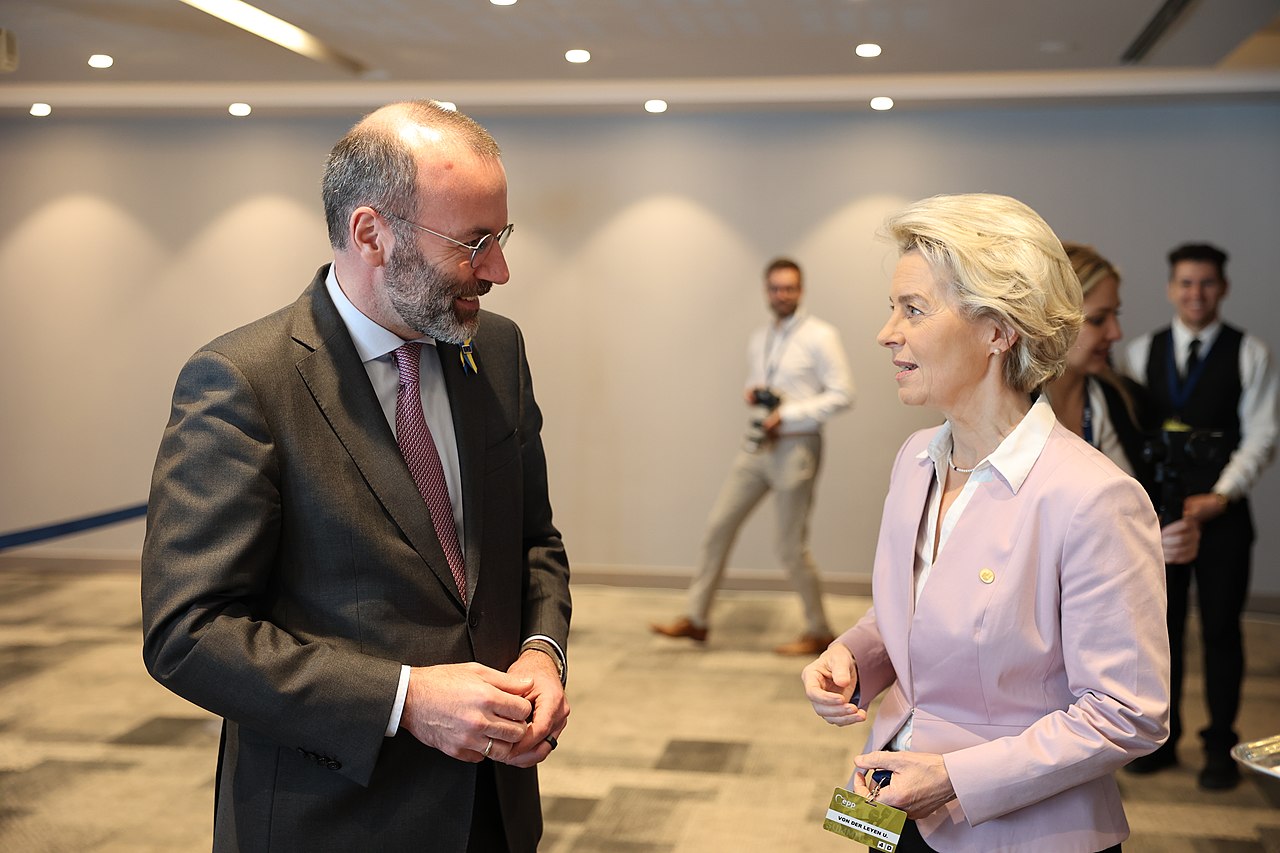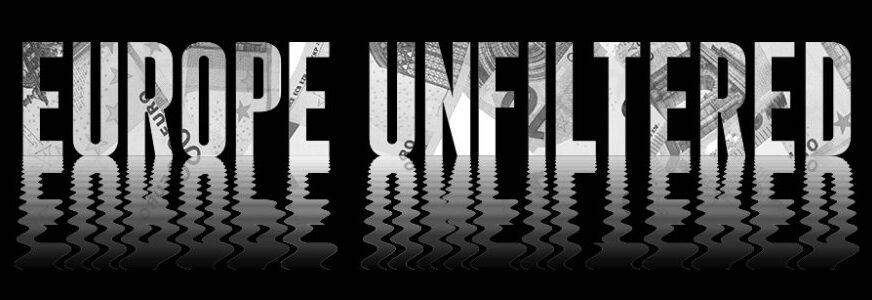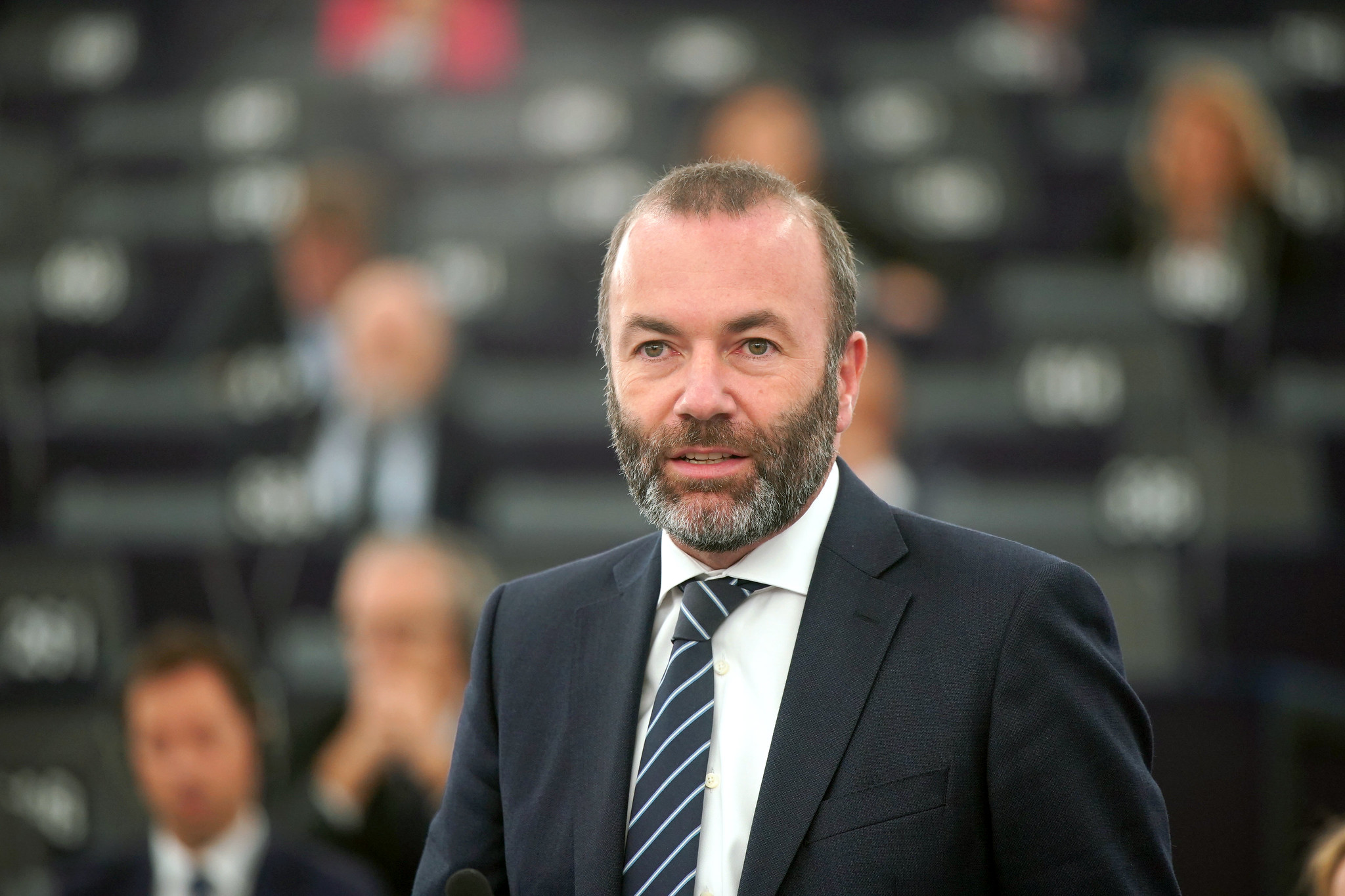If you thought Qatargate was a one-time scandal, think again. Something big is brewing inside the European People’s Party, that could shake-up Brussels’ politics once again. La Gaceta reports that Manfred Weber’s Head of Cabinet, the incoming secretary-general of the EPP, Ouarda Bensouag is the target of a criminal investigation by the Belgian Federal Police.
Bensouag allegedly received simultaneous payments from the European Parliament as official of the institution and from the EPP, as political functionary.

Walking a fine line is no strange thing to Weber’s confidant, when it comes to the issue of conflict of interest. Her husband, Michael Alexander Speiser works as a director at the EP, and he is set to continue to do so. His original appointment was characterized by a senior EP official as “close to nepotism”.
News about the investigation against Bensouag comes right after cracks begin to appear inside the largest political group of the European Parliament. Manfred Weber is increasingly seen by his fellow politicians as an autocrat who is trying to consolidate his power, by placing people loyal to him in key positions.
A Deep Dive Into the Power Struggle Within the EPP
For many years, the European People’s Party (EPP) was the most important and influential grouping within the European Parliament and in many countries across the continent.
It is still strong and influential, in fact, still the largest group within the EP, but the “far-right” has started to chip away its power base as voters expressed their dissatisfaction with the current state of their economies, the forced green transition, migration and other issues.
Of course, it is not a life-or-death fight (yet),but party boss-slash-EP group leader Manfred Weber probably doesn’t make the process of adaptation to the new reality easier. Motivated by his own personal plans and ambitions, he might cause more problems than expected from a seasoned politician.
If European Commission President Ursula von der Leyen was dubbed “queen” or “empress” for her leadership style and penchant for trying to concentrate as much power as possible, Weber could receive the similar title within the EPP.
Though far from being a political chameleon, Weber has shown a tendency for Janus-faced politics: at home a liberal (at least posing so, comparing himself to CSU’s long time hardliner conservative head Markus Söder), in the European Parliament a hawk, teaming up with the far-right to maintain his grip on power. Weber tries to rule over his party with the iron-grip of 18th century enlightened absolutist monarchs.
As he has been chairing the EPP group since 2014 (and the EPP since 2022 – a double position that, by the way, raised some questions about the legality of the double salaries he takes), he has vast experience in doing so, being known for his ability to reach deals even in sensitive topics. But at the same time, he has also shown, that he has no reservations to use his position to foster his long-term plans.
The 2023 dispute over the Doñana National Park’s (Spain) water resources is one example of this. Experts agree that Weber’s criticism against the von der Leyen Commission’s decision was nothing else but “an attempt to position himself for the presidency of the European Commission in the upcoming 2024 elections”.
The same was thought about his attempt to block the Nature Restoration Law. A senior EPP member accused him of directly aiming at von der Leyen, “He wants to humiliate her and stop excessive environmentalism in the Commission. Weber wants to win at any cost.”
The same effort was behind the vote about VDL’s candidacy held on the EPP’s March 2024 Party Congress in Bucharest.
Lately, he was accused of “seeking to drag the conservative family further to the right, and mop up votes”.
Apparently, no castle can have two kings.
Though the war had been slowly boiling under the surface, recently, the magma had found some cracks to make it to the light, bringing along some skeletons. What started as a clash of different policy ideas, turned into an all-in power struggle.

Power Corrupts
As European Commission President von der Leyen and (twice not-European Commission President) Weber fight over the EPP fiefdom, there are others, too, who think that too much power in his hand has corrupted the once-stary eyed poster child of European politics, who previously was said to have modelled himself after former German Chancellor Angela Merkel.
He was known to be a moderate power broker and a real rising star: the youngest MP in the Bavarian parliament, the youngest group leader in the European Parliament and the youngest EPP president ever, to start with.
Weber was also said to be an “extremely reserved” person who “values routine” and “struggled to make personnel decisions”, and a person who “doesn’t have an ego”.
It’s not just his age and facial hair that changed. The shy, background figure is a thing from the past.
Weber has redefined the EPP to his own liking, prompting other MEPs to complain that the party has become dysfunctional and the decisions are taken by Weber and a close circle of advisers instead of with the member parties.
The first open confrontation after the last European Parliamentary elections happened between Weber and EPP secretary-general, Thanasis Bakolas over the dismissal of former MEP Tom Vandenkendelaere from the position of the party’s chief of staff.
A position for which he was hand-picked by Weber himself, after he lost his mandate in the European Parliament.
And a position that was illegal according to the EPP’s internal rules and Belgian law, something that didn’t seem to bother Weber, who seems to be preoccupied with consolidating his power within the party by appointing people loyal to him to key positions.
The first round was won by Weber, as Vandenkendelaere was allowed to stay in position (Weber signed a contract with him).
Of course, Weber’s supporters deny that it is all done for personal gain. Weber is thought to be well-positioned to stop the slow but sure decline of the EPP. And his efforts to consolidate power (by reshuffling the EPP’s senior ranks) are meant only to boost the EPP’s efficiency and visibility, especially compared to the less-than-ideal performance of the previous EPP president Donald Tusk.
The news about Ouarda Bensouag, Weber’s Head of Cabinet fit well into this story.
Just like the Socialists didn’t need the Qatargate scandal, the EPP should do everything to avoid a similar hard landing if it wants to preserve the power it still has. Even if “Mr. Weber tends to win these little battles”, it is rather unfortunate to “give rise to trouble that isn’t needed”, the more so if you go to war, but “surround yourself with corrupt people”.

